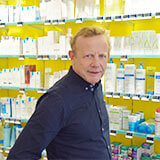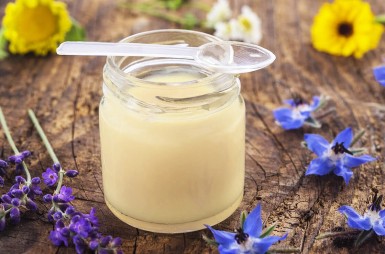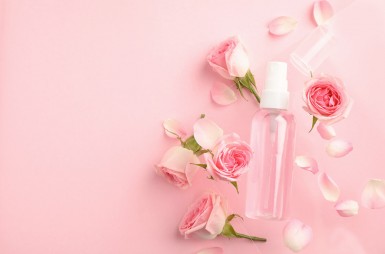Aromatherapy:
a short beginner’s guide
Written by Paul Musset, Doctor in Pharmacy | published on | updated on 17/04/2024

Aromatherapy – which is considered as a branch of phytotherapy – uses aromatic compounds from plants (also called essential oils) to prevent and heal various ailments. Here’s what you need to know about this alternative medicine and its numerous benefits.
Aromatherapy: definition and specificities
What is aromatherapy?
Aromatherapy is the use of aromatic plant extracts (essential oils) for therapeutic purposes.
How are essential oils made?
Essential oils are generally produced by steam distillation. The steam goes through a tank containing plants and takes care of the latter’s aromatic molecules. The essential oil-enriched steam then passes through a coil where it cools and condenses. The essential oil separates from the aqueous phase by difference in density and is then collected in the essencier (or essence recipient).
A brief history of aromatherapy
The word aromatherapy was coined by René-Maurice Gattefossé, who discovered the properties of lavender essential oil when he had to treat a hand injury. Before that, aromatherapy and herbal medicine were considered two similar areas. The distillation of plants was actually already practiced in Egypt and Greece in the first centuries BC.
The specificity of aromatherapy compared to other alternative medicines
Phytotherapy and aromatherapy have one thing in common: they both "heal using plants". However, herbal medicine uses different ways (herbal teas, powders, ointments, etc.) to exploit the medicinal qualities of plants, while aromatherapy only uses essential oils. Aromatherapy is therefore considered as a branch of phytotherapy. Like homeopathy, aromatherapy belongs to alternative medicines.
What is the difference between essential oils, floral waters and hydrolats?
Hydrolats are waters loaded with aromatic compounds found in the plant. They are obtained at the same time as essential oils, i.e. during the distillation of plants through steam. The hydrolat corresponds to the aqueous phase collected at the outlet of the still at the end of the distillation. Hydrolats are sometimes called "floral waters" when the part of the plant distilled is a flower.
Curative uses of essential oils
How they are used
Essential oils can be used internally, externally or by distillation through the air.
- Internally: essential oils are very potent, but their dosages and contraindications must be scrupulously respected. They must be diluted with honey, sugar, vegetable oil or bread crumbs. They cannot be diluted in water. Pharmacies and drugstores offer gastro-resistant capsules, suppositories or eggs which contain essential oils.
- By external route: some essential oils can be diffused through the skin. They are generally associated with a vegetable oil, a wax, an ointment, a cream or a body milk.
- Through the air: in aromatherapy, the use of an essential oil diffuser is very common. The essential oil released into the air is absorbed by the respiratory tract and reaches the brain. There, it exerts its psycho-emotional therapeutic action. There are different types of diffusers: glass diffusers, diffusers equipped with a ventilation system, porcelain diffusers with electric diffusion, with passive diffusion (porous pottery) and with heat.
Browse through our range of essential oils and diffusers on Cocooncenter.
The different properties of essential oils
Among the forty or so common essential oils, around 80 different properties can be identified. Essential oils can have a direct (antibacterial, antifungal, antiviral…) action on pathogens. They can also have specific physiological functions (with effects that are similar to estrogens, for instance) and actions on metabolism (vegetative nervous system, for example). They thus offer numerous benefits among which anti-inflammatory, stimulating, antispasmodic, analgesic, choleretic, anti-pruritus, antiviral, depurative, calming, sedative, tonic, aphrodisiac, antidepressant effects…
Aromatherapy: what do scientific studies say?
More and more scientific publications prove the efficacity of aromatherapy, especially on specific ailments:
- Lavender essential oil is said to be quite potent on the quality of sleep, the reduction of stress, anxiety and depression, specifically thanks to its sedative and soothing effects.
- Hypertension could apparently also be soothed thanks to the use of essential oils that help reduce stress and anxiety: namely a blend of true lavender, marjoram, ylang-ylang, bitter orange and neroli.
- Type 2 diabetes: the essential oils of cumin and cinnamon are particularly known for their hypoglycemic effect which allows for glycemic control.
- The essential oil of geranium rosat also helps fight urinary tract infections. Massages done with lavender essential oil diluted in a vegetable oil help reduce the effects of menopause.
- Niaouli essential oil helps limit the side effects of radiation therapy.
- Hospital-acquired nosocomial infections are also reduced by the antiviral, antifungal and antibacterial actions of tea tree, oregano, cloves and cinnamon essential oils.
Aromatherapy: which precautions need to be taken?
Dosage, dilution, method of use
As essential oils are potent and irritating, it is extremely important to use them following the indications given by the manufacturers or the specialists. They must systematically be diluted when they are re used externally (as part of a vegetable oil, cream, ointment, etc.). Moreover, some of them should not be released into the air and others must never be ingested on a regular basis or in high doses.
Risks and side effects
As essential oils have a very high concentration in chemical active elements, they can prove dangerous. They must be used with care, especially on kids under 10 as well as potentially sensitive people (pregnant women or nursing mothers, the elderly, people with epilepsy or asthma…)
Some essential oils can prove irritating for the skin if they are not used correctly. In some cases, they can be photosensitizing: the substances contained in essential oils are activated by the sunrays and become irritating and even toxic for the skin. Do not expose your skin to the sun after you have applied essential oil.
Allergic reactions can also occur. It is thus essential to carry out a test by applying a small amount of the chosen essential oil on the skin before using it on a regular basis.
Essential oils containing phenols and ketones are irritating to the respiratory tract and should not be diffused. It is also worth noting that ketones taken orally in high doses over long periods of time can prove poisonous.
Heavy and repeated use of certain essential oils can have hepatotoxic and neurotoxic effects.
Ketones: potentially toxic molecules
Essential oils containing ketones should be used sparingly and some should never be taken orally. Among the essential oils containing ketones, the most neurotoxic ones are officinal sage, thuja, achillea ligustra, atlas cedar, all species of mint, camphor eucalyptus, piperitone eucalyptus, eucalyptus camaldulensis, eucalyptus globulus, eucalyptus polybractea, aspic lavender, stoechade lavender and rosemary camphor.
As a general rule, essential oils must not be used in their pure form. If you are not sure, we recommend you ask an aromatherapist or a pharmacist who specializes in aromatherapy.
Aromatherapy uses essential oils in various ways and helps relieve many ailments: stress, urinary tract infections, hormonal imbalances… Essential oils have properties that can sometimes treat specific pathologies or act in synergy with traditional treatments.
Three key points to remember about aromatherapy:
- Aromatherapy uses essential oils internally, externally or through the air for medicinal purposes.
- Essential oils have multiple and powerful virtues capable of relieving many pains or pathologies.
- They must be used with care: the risks and side effects can be significant due to the potency of the compounds.
















